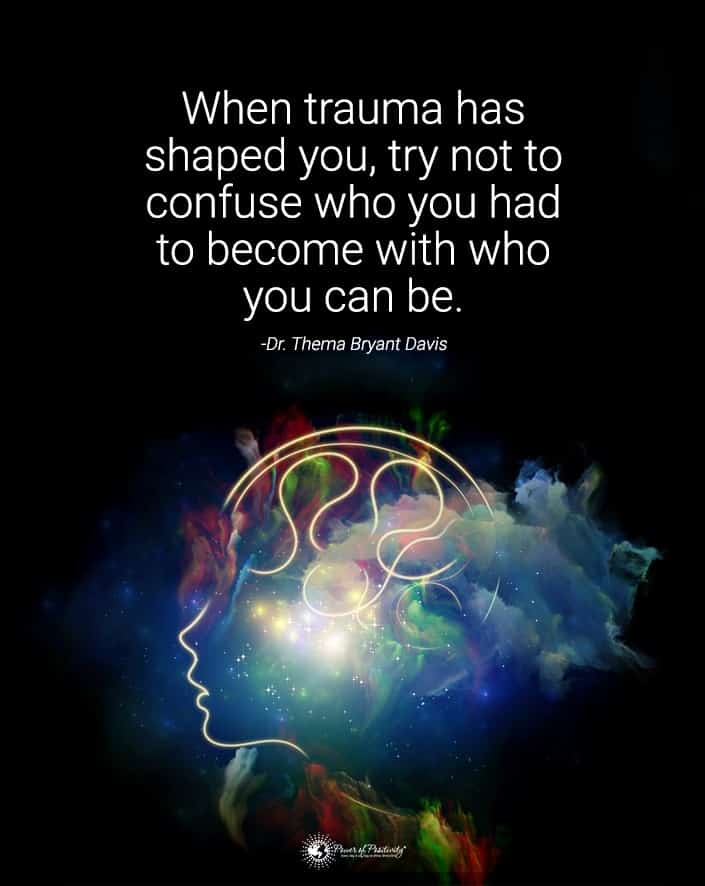There are a few eating disorders that plague people, and all of them have their dangers. One of the most troubling is the urge to binge eat. Often these folks cannot control the amounts of foods they consume.
Though conditions like bulimia also involve binging, the purging aspect is different. Binge eaters often don’t purge what they consume; instead, they gain weight at a rapid level. The obesity epidemic continues to spin out of control in this country. In fact, Health Data estimates that more than 160 million people fit into this category.
Things That Cause a Negative Mindset
What is classified as binge eating? When a person consumes a massive amount of food in a short time frame, then it’s considered binging. Did you know that your habits can dictate how much food you eat?
 Here are some practices you have control over that can help you to eat less.
Here are some practices you have control over that can help you to eat less.
- Overthinking about your problems
- Starving during the day and waiting too late to eat at night
- Trying to be on super restrictive diets.
- Cutting out whole food groups instead of using moderation
- Eating while watching television.
- Holding in your feelings and using food for comfort
- Going out to eat too often
- Snacking during the day
- Eating on the road
- Consuming too much fast food
- Not controlling your sweet tooth
- Yoyo dieting
- Not using portion control.
- Using food to socialize
Fourteen Triggers That Might Cause Someone to Binge Eat
You must know that eating disorders can cause significant organ damage, and there is no one safer than another. It requires behavioral modification as well as counseling to get through these disorders. Before you can begin to heal, you need to identify the behaviors and triggers that cause you to binge. Here are the most common reasons.
1. Stress
Everyone handles stress differently. Some choose to eat as a coping method, while others refuse to take a bite. Not just binge eating, but many eating disorders start with stress as the crux.
How many times have you sat down with a tub of ice cream and ate the whole half-gallon without realizing it? These bad habits can easily stretch your stomach, requiring you to eat more food to feel satisfied. Additionally, when you turn to food for comfort once, it will become a bad habit until you take control of it.
It’s imperative to reduced or eliminate stress if it’s the cause. You won’t be able to get binge eating under control when the pressure is still at the crux and unmanaged.
2. Family History of Eating Disorders
According to the National Institute of Health, eating disorders tend to run in families. It also states that things like binge eating often appear during adolescents, but they can also appear later in life. Treating someone who has a family history is always more difficult as these patterns are often learned behaviors.
If the entire family is overweight and has binging issues, it will be hard to go against the grain.
3. Emotional Trauma
Your emotions play a big part in your eating habits. Some people binge when they’re emotional, and they never put two and two together. Those with high anxiety may turn to pizza, chips, and other carbohydrate-laden foods to cope. Additionally, counseling can help you see the need to control your eating habits and get to the core of your need to binge.
It’s not uncommon to see overweight individuals with severe emotional issues, and their efforts to cope include eating. It’s the same principle that causes someone to drink alcohol or use illegal substances. These folks are using food to get rid of the pain.
4. History of Abuse
Individuals who have suffered from abuse are more likely to develop an eating disorder. Now, since there are many types of these disorders, it’s hard to say which one they will be inclined to. However, binging is quite common in people who have a history of abuse.
The abuse can be physical, mental, or sexual, but the outcome is still the same. It leaves your emotions a mess, and you feel violated. These feelings don’t go away, but you must learn practical coping skills. Even if the abuse happened 20 years ago, it could still affect your psyche as an adult.
5. Family History of Substance Abuse
Is there is a history of substance abuse in your family? Some may use alcohol while others will use food. Studies have shown that there are genetic links to substance abuse. According to American Addiction Centers Recovery, there isn’t one gene that determines whether you have an addictive personality, but there are many genes that make this determination.
So, when you have a history of addictions, it’s tough to overcome. Also, it can increase your chances of self-medicating practices by up to 50 percent. Whether it’s food, heroin, or tequila, the need to binge all comes from your chemical makeup.
6. Cultural Influences
Your culture can play a significant role in your eating habits. Contrary to binging is anorexia. This eating disorder is where a person doesn’t eat or takes massive amounts of diet pills to keep them from eating. They view gaining weight as ugly, and no matter how much weight they lose, they will never see themselves as anything other than overweight.
The cultural aspects of eating disorders cannot be ignored. Hollywood has played a big part in making women feel that they must be a size two to fit in. Women are starving themselves because they want acceptance. Now, for the person who is overweight, their culture can also be fundamental.
What if a child grows up in a home where healthy eating and exercise aren’t encouraged? What if that child is giving a cookie when they have a temper tantrum, and because sweets work to calm the child, they learn to use junk food for life? Binging can also be caused by cultural influences.
If you hang with people who tend to frequent buffets and have more than one massive serving at dinner, it won’t be long before you mimic the same behaviors as it becomes acceptable. It’s scary how much people and your culture influence you.
 7. Brain Anomalies
7. Brain Anomalies
Did you know that some people with eating disorders often have brain abnormalities that cause them? Your brain issues can range from mild to severe, and they can affect the foods you consume as well as the amounts.
Brain abnormalities can cause eating disorders, such as binge eating. The signal from the brain to the stomach that indicates your full or hungry may not work correctly. Thus, you can overeat and not even realize how much you’ve consumed. Since most of these issues are psychological, it’s best to have counseling to retrain your brain.
8. Hormonal Defects
Different illnesses or diseases can cause hormonal abnormalities, so finding the underlying cause before treating the eating disorder is essential. Once the hormone levels are back to normal, they may overcome the eating disorder on their own or with some therapy. Some people require more treatment even after their hormones are normal again, and they may struggle with eating disorders for years to come.
Did you know that your hormones can significantly impact you’re eating? As your levels go up and down, so do your cravings for food. When you have these fluctuations, it may cause you to develop an eating disorder. Your hormones can make you overeat to the point of getting sick. If there is a hormonal imbalance in the body causing the binging, things should subside once the levels are back to normal.
9. You Suffered Abuse by a Bully
Did you know that people who have been bullied are more likely to develop an eating disorder than others? You often see bullies attack the overweight, and then they turn to food to comfort themselves from the attacks. Body image can come from bullying, and the bully doesn’t always have to be the schoolyard’s proverbial character.
10. Obsessive-Compulsive Disorder
OCD is a common anxiety disorder that causes people to be obsessive-compulsive about things. The need to control is a massive part of this disorder, and the symptoms can range from manageable to crippling. You may develop an eating disorder where you compulsively eat as a result. Thankfully, this is a very treatable condition that can be managed through counseling and herbal remedies for brain health.
Final Thoughts on Understanding the Causes of Binge Eating
Did you learn anything about binging that resonated with you? Did you see some of the everyday habits you have that cause you to eat more than you should? Maybe you have metabolic or psychological reasons for more.
Since obesity can cause significant damage to your system, as well as your organs, you must get binge eating under control. Getting help may include counseling or joining a support group. The longer you let the problem fester, the more weight you will gain. You may even turn to methods like purging to combat the need to eat so much.























